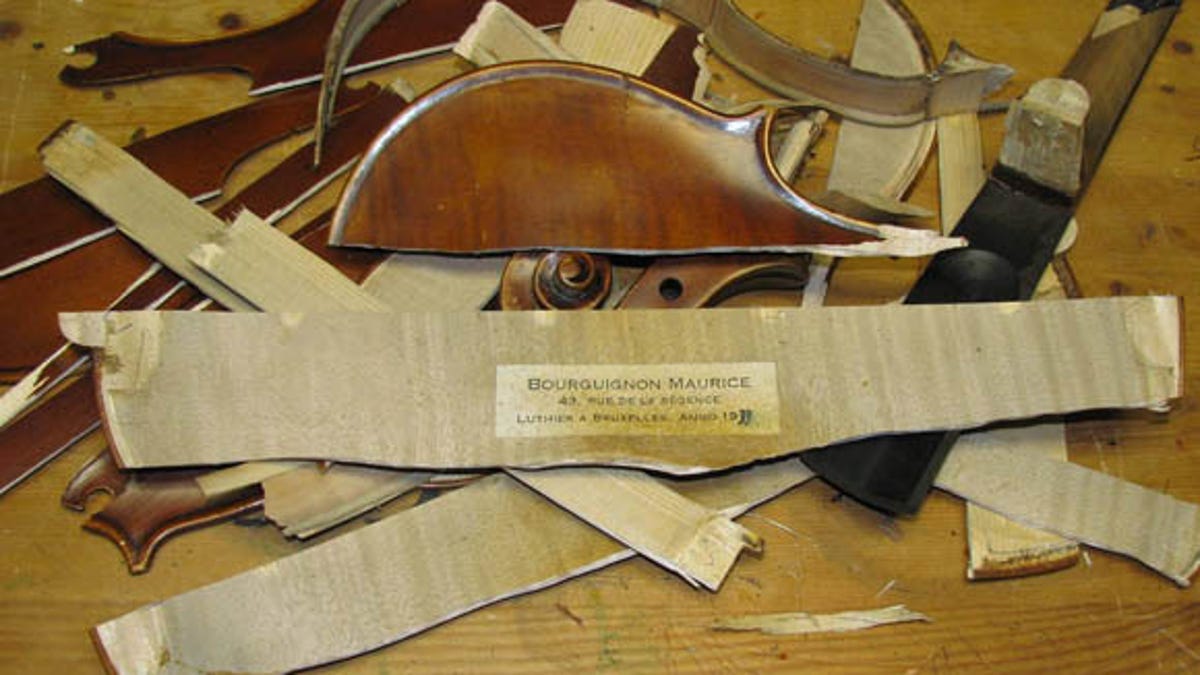PayPal dispute ends in destruction of violin
Buyer contests the authenticity of a purportedly rare violin, and the payment processor instructs him to smash it, raising the ire of the seller.

Quite the donnybrook is brewing on the Internet over PayPal's decision to order a customer to destroy a purportedly rare violin.
A Regretsy.com reader named Erica related yesterday how she sold an old French violin "that made it through WWII" to a buyer in Canada for $2,500. However, the buyer disputed the authenticity of the label and demanded his money back. When the buyer contacted PayPal with his concerns, the payment processor instructed him to destroy it and refunded the purchase price.
"Rather than have the violin returned to me, PayPal made the buyer DESTROY the violin in order to get his money back," Erica wrote. "They somehow deemed the violin as 'counterfeit' even though there is no such thing in the violin world."
He even sent the seller a photo of the destroyed violin ("The buyer was proud of himself," Erica wrote.)
"It is beyond me why PayPal simply didn't have the violin returned to me," she wrote.
So why didn't he? Apparently PayPal's user agreement includes a dispute resolution process for items "significantly not as described" that gives it the last say on items it suspects are fakes:
Further, if you lose a SNAD Claim because we, in our sole discretion, reasonably believe the item you sold is counterfeit, you will be required to provide a full refund to the buyer and you will not receive the item back (it will be destroyed).
In a media statement defending the policy, PayPal said the destruction of goods it suspects to be counterfeit is in accordance with many countries' laws. "The reason why we reserve the option to ask the buyer to destroy the goods is that in many countries, including the U.S., it is a criminal offense to mail counterfeit goods back to a seller," the company said.
Despite Erica's assertions that violin counterfeiting is nonexistent, experts at the American Federation of Violin and Bow Makers point out that "millions" of "Stradivarius" violins have been produced by violin makers in Europe, while Antonio Stradivarius is thought to have created only 1,100 during his lifetime.
Even though Erica said she had the violin "examined and authenticated by a top luthier prior to its sale," it's unknown what persuaded PayPal that the item was not the genuine article. PayPal declined to comment on that point, citing the company's privacy policy. The company is reportedly reviewing the matter.
Updated at 3:35 p.m. January 5 with PayPal declining to comment on how it determined the violin was counterfeit.

